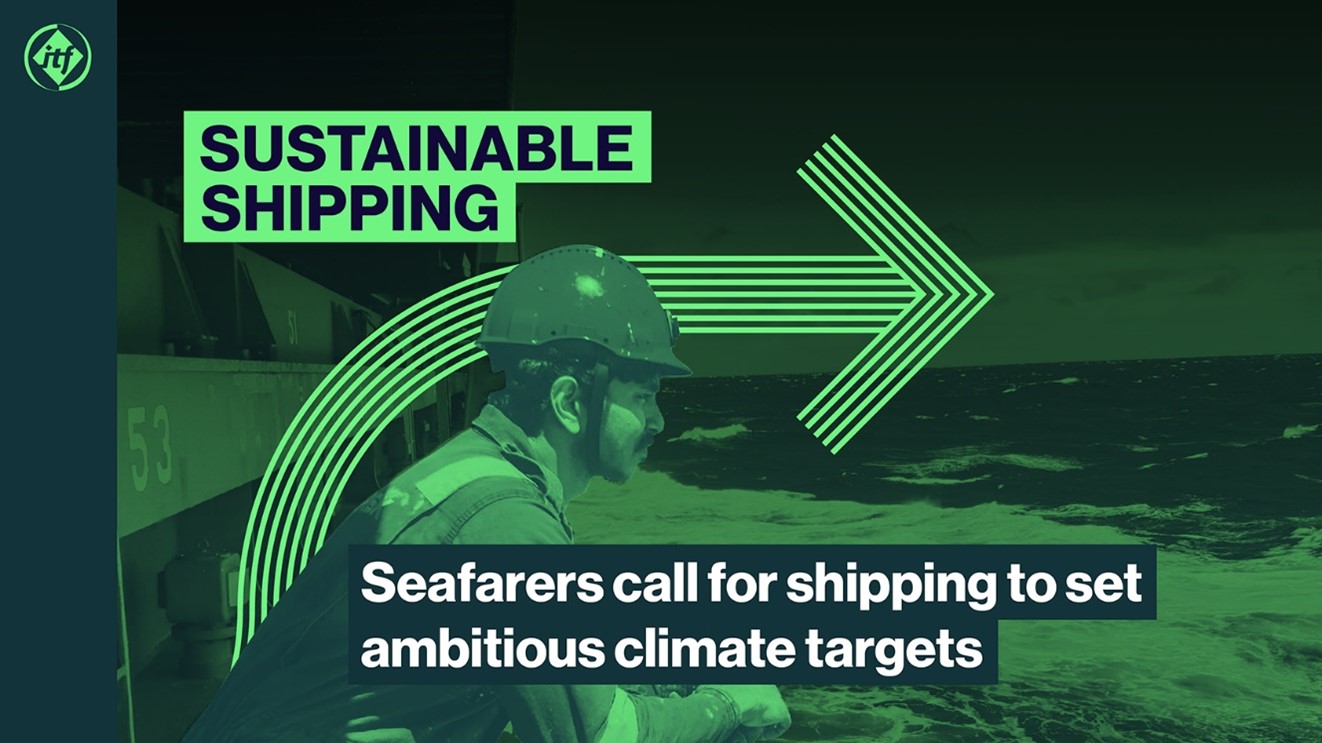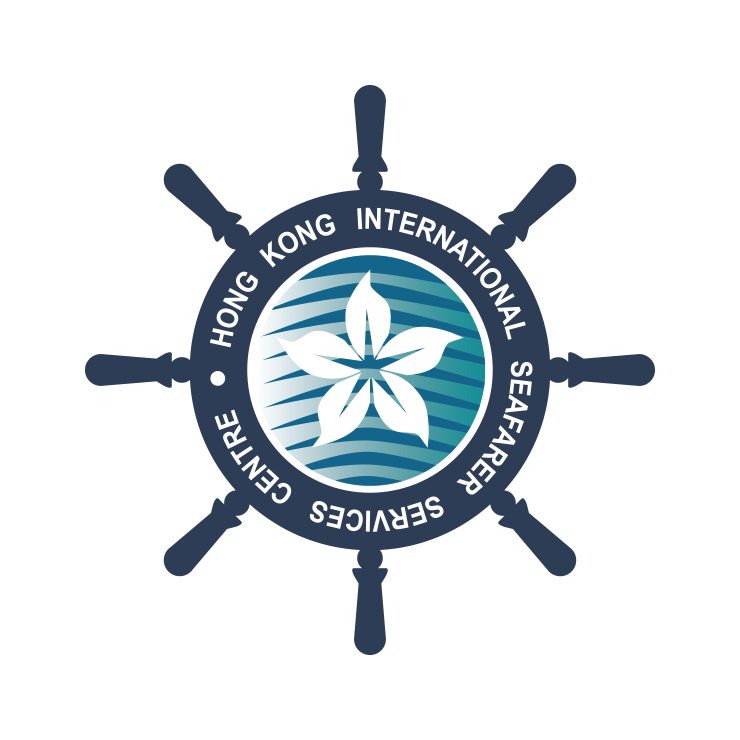
(图片来源/Image: ITF)
国际运输工人联盟 (ITF)发布新立场文件,告诫航运业应制订更加积极进取的目标,以有利于防止全球气候灾难。
The shipping industry needs to set ambitious targets to help prevent global climate catastrophe, the International Transport Workers’ Federation (ITF) cautions in a new position paper.
目前世界海洋上有超过50,000艘货船,其中大部分使用低阶、重型「船用」燃料。这些船舶向大气排放的温室气体总浓度,相等于工业强国德国和日本水平。
There are currently more than 50,000 cargo ships on the world’s oceans, the majority of which run on low-grade, heavy ‘bunker’ fuel. Together, the ships emit as much greenhouse gas into the atmosphere as entire countries, such as industrial powerhouses Germany and Japan.
具有里程碑意义的《巴黎协定》或其前身并未有明确将国际航运包括其中。 《巴黎协定》旨在将全球气温上升限制在1.5°C。为使国际航运符合《巴黎协定》,ITF呼吁航运业及监管机构承诺到2050年实现零碳目标。
International shipping has not been explicitly included in the landmark Paris Agreement or its predecessors. The Paris Agreement aims to limit the global temperature increase to 1.5°C. To bring international shipping into line with the Paris Agreement, the ITF is calling for the industry and regulators to commit to a target of zero-carbon by 2050.
「在海上工作的人们每天都在受到气候变化的影响,他们非常担心航运业行动不够迅速」,ITF秘书长斯蒂文•科顿说。 「要使航运业摆脱化石燃料,急需作出重大改变。海员对工作有热诚、知识和主见,可以帮助推动航运业迈向零碳未来。」
“People who work at sea witness the impacts of climate change every day and are extremely concerned that their industry is not acting quickly enough,” said Stephen Cotton, the ITF’s General Secretary. “Huge changes are needed swiftly to switch the shipping industry away from fossil fuels. Seafarers have the passion, knowledge and ideas to help move the industry to a carbon-free future."
「未来几周领导人在联合国气候高峰会和其他会议,为防止不可逆转的气候变化而作的决定将至关重要。作为劳动者,我们应该拥有一个可以安全居住的地球。」
“The decisions made by leaders over the coming weeks at COP and elsewhere will be crucial to preventing irreversible climate change. As working people, we deserve a planet that is safe to live on.”
ITF发布的可持续航运的立场文件《蔚蓝海洋外的绿色地平线》提出了八项「公平转型的基本原则」,以确保在航运业减排转型过程中,无论是在测试替代燃料时,还是重新规划技能和职业道路时,在航运业由化石燃料转向可替代燃料将导致工作岗位的变化时。工人的声音不会被忽略。
The ITF’s sustainable shipping position paper released, The green horizon we see beyond the big blue, set out eight ‘fundamental principles for a just transition’ to make sure the decarbonisation of the industry includes workers’ voices, as the industry tests alternative fuels, redesigns skills and career pathways, and shifts employment from fossil fuels to alternative fuel bunkering systems.
「海员希望成为解决危机的一份子」,ITF海员分会主席兼可持续航运联盟工作组主席 David Heindel 说,「我们希望能为航运业采取的行动而感到骄傲,并在转型中发挥引领作用」。
“Seafarers want to be part of the solution,” said David Heindel, ITF Seafarers’ Section chair and the Federation’s Sustainable Shipping Working Group chair. “We want to be proud of the action taken by our industry. We want to lead the transition.”
但ITF的文件并不讳言,船用燃料从重碳转向氢或氨等新能源时,可能为工人带来危险。为此,安全问题应予以仔细考量,海员亦需接受足够培训;而引入新技术等亦不应成为减少船上人数、降低海员待遇的借口。事实上,该文件指出,转型可带来更多就业机会,甚至会激励更多女性与年轻人从事海上工作。
But switching from carbon heavy bunker fuel to new energy sources such as hydrogen or ammonia has the potential for danger for workers, the ITF’s paper points out. Safety must be carefully thought through. Seafarers must receive adequate training. Changes such as the introduction of new technology must not be used as an excuse to reduce crewing numbers on ships or to attack workers’ jobs or conditions. In fact, it says, the transition could lead to more employment, and is especially an opportunity to encourage more women and young people to take up work at sea.
「如果我们要为子孙后代提供可持续的航运,海员必须从一开始就参与其中,」 Heindel说,「航运业应充分利用工人的经验和专业知识,唯有这样,实现零排放的计划才可能会更快捷、安全和公平地进行」。
“Seafarers must be at the table from the outset, if we are to deliver sustainable shipping for future generations,” said Heindel. “The industry would be well-advised to draw on workers’ experience and expertise. That way, plans for achieving zero-carbon emissions can happen quickly, safely and fairly.”
ITF亦警告,港口码头需大幅度投资建设,以应用新能源系统,取代柴油储存库和管道等基础设施,升级费用更可能会耗资达数千亿元。转型至零碳航运将是新挑战,尤其对地球南方的国家而言。ITF在文件中呼吁国际监管机构、各国政府和航运业本身应研究如何公平地为转型期提供资金,特别是为世界最贫穷的国家投资。
Ports, the ITF warns, will need major investment to replace diesel tanks and pipeline infrastructure with the fuel systems of the future. Upgrades could cost hundreds of billions of dollars. Transitioning shipping to zero-carbon will be a challenge, particularly in the global south. The ITF position paper calls on international regulators, governments and the shipping industry itself to look at ways the transition can be funded fairly, particularly for investments needed in the world’s poorest countries.
「工人的公平过渡被纳入《巴黎协定》是有原因的:没有公平对待劳工就没有气候公义」,科顿说, 「工人将推动全球经济的迫切转型,而海员将推动航运业的转型。我们已准备迎接挑战」。
“A just transition for workers was included in the Paris Agreement for a reason – there can be no climate justice without labour justice,” said Cotton. “Workers will drive the urgent transformation of the global economy, and seafarers will drive the transformation in shipping. We’re up for the challenge.”

